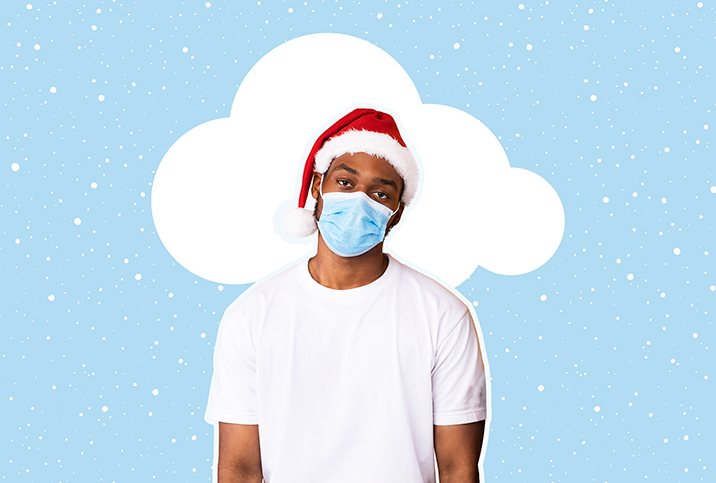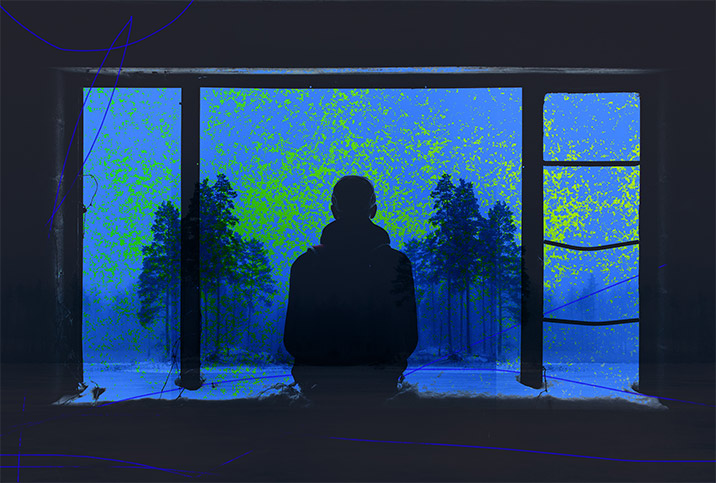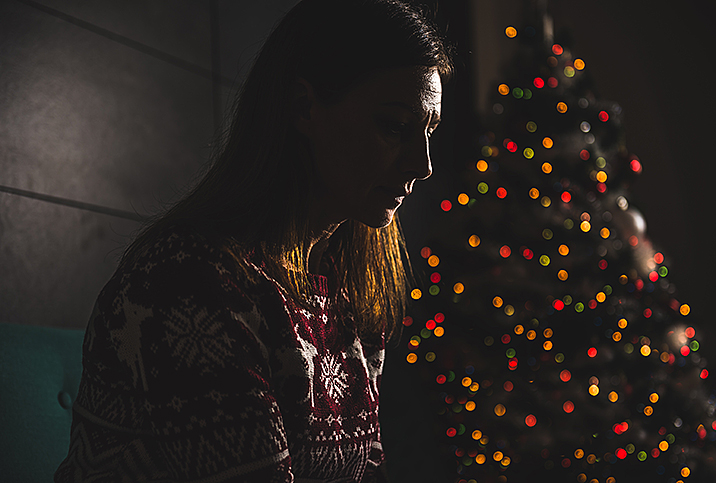A Holiday Guide to Seasonal Depression

During the winter holidays, many people look forward to snowy walks, gift exchanges and family gatherings. But for those living with seasonal depression, the holiday season isn't the most wonderful time of the year.
Seasonal depression, or seasonal affective disorder (SAD), is a mental health condition that comes and goes with the winter season. It is linked to the colder and darker months when there's less daylight and you're less likely to spend time outdoors. Some studies have found that depression diagnoses increase when daylight saving time ends.
Seasonal depression can affect a person's mood, motivation and energy levels, making the holidays that much more difficult to cope with. Family commitments, social gatherings and the pressure to be jolly at Christmas are stressful enough, but seasonal depression can make it even more difficult to navigate the holiday season.
What is seasonal depression?
It isn't considered a mental illness under the Diagnostic and Statistical Manual of Mental Disorders (DSM-5-TR)—used by doctors and mental health professionals to diagnose mental illnesses—but SAD is a type of depression that impacts roughly 10 million Americans, said Laurie Singer, M.S., L.M.F.T, a therapist and behavioral specialist in Chicago.
"The definitive cause is still not known, but there is evidence that points to issues with melatonin, which is a hormone our brains secrete in response to darkness," Singer explained. "We also know that a drop in serotonin, which is a mood stabilizer, can play a role, as well. As sunlight helps regulate serotonin, when the days become shorter the diminished sunlight can make the situation worse. This is why SAD is more common in those living far north or far south of the equator where sunlight hours are significantly shorter."
SAD is much more common in women than it is in men.
"Research shows that women appear to be more susceptible to seasonal depression," Singer said. "Some studies have shown that women are more than four times as likely as men to be diagnosed with SAD. Current research suggests this may be due to fluctuating estrogens."
She pointed out that the disparity in diagnosis may be due to women being more likely to seek help for symptoms related to seasonal affective disorder. And they are usually easier to diagnose. SAD may impact nearly as many men as women, but they may choose to hide their symptoms.
Symptoms of seasonal depression
Seasonal depression can cause an onslaught of symptoms that can vary from manageable to debilitating. And they differ from person to person, according to Singer.
Symptoms of seasonal depression include:
- Irritability
- Cravings, overeating or changes in appetite
- A loss of interest in regular activities
- Social withdrawal
- Difficulty concentrating or staying motivated
- Excessive sleep
- Fatigue and sluggishness
- A general low mood that doesn't go away
- A sense of overwhelming sadness, hopelessness or anxiety
- Thoughts of self-harm and suicide
How to survive the holidays when you have seasonal depression
Seasonal depression can make everything in fall and winter more difficult to manage, and that includes the holidays—despite the twinkly lights and festive cheer.
"Many of us already feel pressure around the holidays with social events, family expectations and get-togethers," Singer said. "Having to force ourselves into these situations, or even explain why we're not 'happy' or don't want to take part, can exacerbate the issue."
If you're wondering how to survive—or even enjoy—the holidays with seasonal depression, Singer recommended taking a proactive approach and focusing on what makes you happy.
"As an example, if spending time with family making cookies brings someone joy but cooking an entire holiday dinner seems overwhelming, then move away from what's overwhelming," she said. "Delegate others to help with the dinner or make it a potluck this year. It's about breaking up a routine that may have contributed to feeling bad with something new to help achieve a positive result."
Equally, try not to put too much pressure on yourself, and don't be afraid to say no to things.
"It's important to recognize what we can do and not overextend ourselves with every commitment or invitation that comes about," Singer said. "With all the pressures it's easy to forget that the holidays are about enjoying ourselves. So while planning the perfect holiday for our friends and families, we have to remember our own needs, as well."
Singer recommends other ways to cope with seasonal depression over the holidays:
- Spend as much time as possible outdoors and soak up some sunlight.
- Engage in positive self-talk and remind yourself that winter is temporary and spring is just around the corner.
- Stay active, whether it's by exercising (which is effective for depression but not anxiety) or through social engagements with friends and family.
- Light therapy, such as using a sunrise alarm clock, has been shown to help.
- Undergo cognitive behavioral therapy (CBT), a form of psychotherapy often called "talk therapy."
Alternatively, Singer recommends speaking to your doctor or healthcare provider about prescription medications to treat seasonal depression.
"There are also antidepressants that may be an option for extreme cases where other methods of alleviation have failed," she explained. "Selective serotonin reuptake inhibitors, which is the most common medication for depression, have been shown to be effective by increasing serotonin levels in the brain."


















